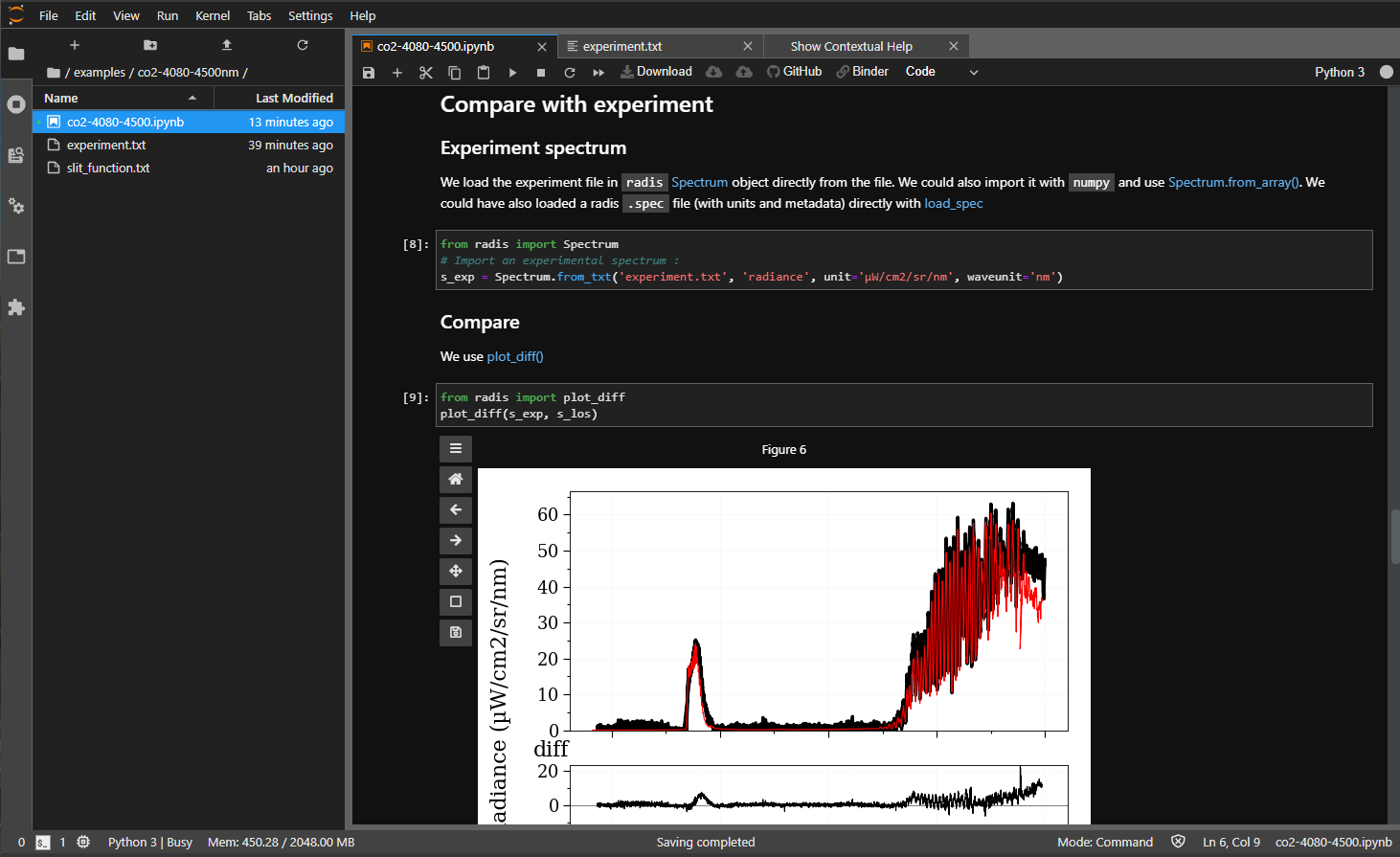This project includes:
- Interactive examples to calculate infrared spectra of molecules with RADIS, a convenient way to have access to HITRAN online without any installation.
- Static examples of fitting algorithm built around RADIS
A full online environment for advanced spectrum processing and comparison with experimental data

Start on radis.github.io/radis-lab/
Run RADIS interactively directly from the browser. No installation needed!
Manipulate a Spectrum object:
Calculate CO equilibrium and nonequilibrium spectra:
3. online_fitting.ipynb (JupyterLab)
Import experimental spectra in an online JupyterLab instance and start fitting them!
Start a bare RADIS online session:
Install RADIS then run these examples locally.
A 3 temperature fitting example reproducing the validation case of Klarenaar 2017 [1], who calculated a transmittance spectrum from the initial data of Dang 1973 [2], with a 1 rotational temperature + 3 vibrational temperature (Treanor distributions) model
CO2 Energies are calculated from Dunham developments in an uncoupled harmonic oscillator - rigid rotor model. The example is based on one of RADIS validation cases. It makes use of the RADIS Spectrum class and the associated compare and load functions
| [1] | Klarenaar et al 2017, "Time evolution of vibrational temperatures in a CO2 glow discharge measured with infrared absorption spectroscopy" doi/10.1088/1361-6595/aa902e |
| [2] | Dang et al 1982, "Detailed vibrational population distributions in a CO2 laser discharge as measured with a tunable diode laser" doi/10.1007/BF00694640 |
Code is available in the fit_klarenaar_validation_case.py file
An example where we use RADIS to calculate the upward-radiation of the Earth for different CO2 mole fractions in the atmosphere, based on the simple Standard Atmosphere Model. The difference evidences the radiative forcing of CO2.
Code is available in the radiative_forcing_co2.py file
The absorption coefficient of all HITRAN species is calculated in plot_all_hitran_spectra.py at 300 K, 1 atm for the first isotope.
For instance:
- Water (H2O) absorption coefficient at 300 K :
- Carbon dioxide (CO2) absorption coefficient at 300 K :
- Methane (CH4) absorption coefficient at 300 K :
All other species can be found on the RADIS website
- RADIS Documentation: http://radis.readthedocs.io/
- RADIS Source files: https://github.com/radis/radis
- PyPi project: https://pypi.python.org/pypi/radis
- Test status: https://travis-ci.org/radis/radis
- Test coverage: https://codecov.io/gh/radis/radis




